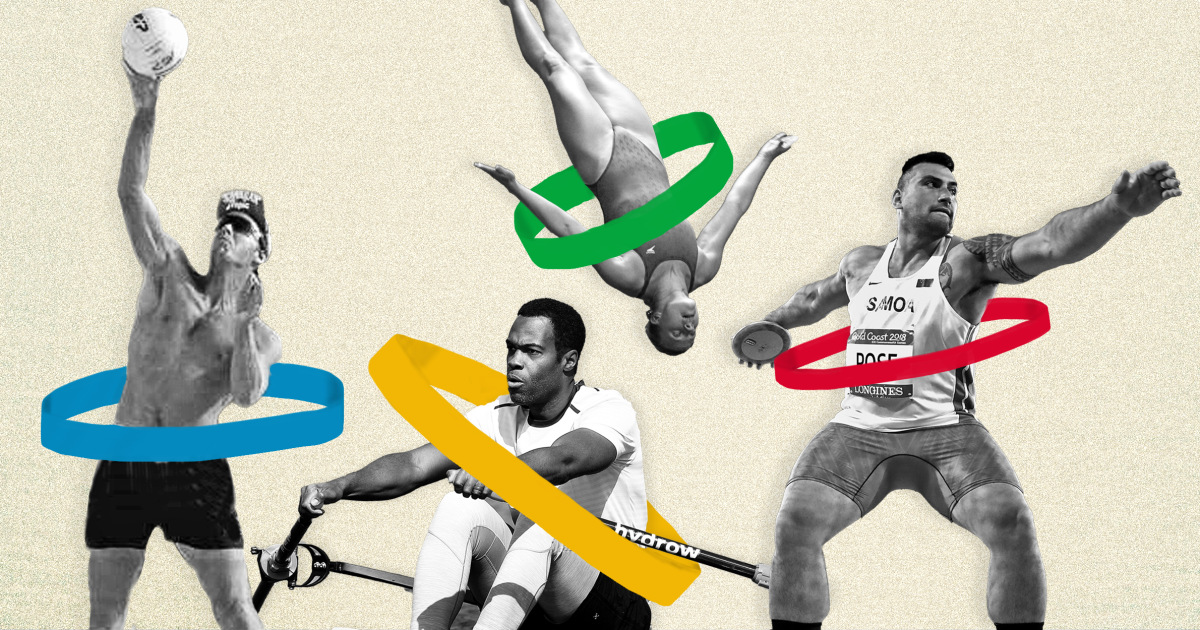
Emily Molins was well on her way to competing in the Olympics. Molins, 20, a lightweight rower, joined the under-23 U.S. national team last year, and she competed for Stanford University's national championship team.
Then in early July, Molins was invited to join a brief Zoom video call. Stanford's athletic director informed her and her teammates that their program would be eliminated because of a history of cost overruns in the sports department that Covid-19 had made even worse.
The news devastated Molins. Her Olympic aspirations had been thrown into uncertainty.
"This decision makes it much, much harder, especially as a college athlete, to have the resources to pursue elite athletics," said Molins, who has since decided to take a gap year.
Stanford isn't the only college making adjustments to its sports programs. Numerous college sports conferences and universities have postponed fall sports for reasons centering on safety concerns for student athletes around Covid-19 — and now some college sports programs are being cut altogether. The cuts, many of which are taking place in programs that feed athletes to U.S. Olympic teams, may have a downstream effect on the country's participation in those sports.
The college sports hit the hardest include rowing, swimming, diving, tennis, track and field and volleyball. Over the past two Summer Olympics in 2012 and 2016, across these six sports, Team USA medaled 147 times out of the 216 total events, according to an NBC News tally.
Twenty-six colleges and universities, from Stanford to Dartmouth College, have cut more than 90 sports programs, according to an NBC News count. Stanford has cut 11 sports programs, casting Molins and 239 other athletes adrift.
More than 1,500 Division I student-athletes will soon no longer compete at the varsity level at their schools for the most part because of Covid-19-related cuts. Hundreds of coaches and staff members no longer will have their teams or, in many cases, their jobs.
The ramifications of these cuts are just beginning to be sorted out by the U.S. Olympic organizations and governing bodies for each sport, and experts say the coming decisions could scuttle athletic development for the next Olympic cycles.
"To be on the national team, you've got to play in college," said Erik Shoji, a U.S. Olympic bronze medalist, former NCAA champion and four time All-America volleyball player from Stanford.
"Our coach, he's a men's volleyball coach in college right now," Shoji said. "Going to college is the only reason he saw us play."
Sarah Wilhelmi, director of collegiate partnerships for the U.S. Olympic & Paralympic Committee, said the college system is "an absolute lifeline for our Olympic development teams."
In China, the United Kingdom, France and other countries, government ministries focus on building their countries' sports teams. According to the NCAA, at the 2016 Summer Olympics in Rio de Janeiro, more than 8 of 10 athletes on U.S. national teams competed at the collegiate level before the Olympics.
Looking at the immediate impact the cuts may have on Team USA is unclear because of the "different trajectory or maturation" of each sport's roster, Wilhelmi said.
Wilhelmi acknowledged that not all sports are the same and that Covid-19 may have exposed just how ineffective blanket policies made for football and basketball, such as certain NCAA recruiting rules that are expensive to follow, were across sports.
Many of the sports that schools are cutting, such as rowing, water polo and swimming, don't have professional leagues of the size or the resources of the NBA or major-league baseball for athletes to join once their collegiate careers are over. While training opportunities are available through Olympic Development Programs and development camps, college sports are an important part of the athlete development pipeline.
Sports with larger professional infrastructures and leagues that generate millions of dollars in revenue, such as basketball and football, have yet to see a program canceled at the Division I level.
Coaches and student-athletes also talk about the domino effect these cuts can have, when one school's cuts serve as a playbook for others. Two months after Stanford announced its cuts, the College of William and Mary in Williamsburg, Virginia, announced that it was ending seven sports of its own. The language William and Mary used in its announcement made news for mirroring exactly some of the words in Stanford's announcement.
Alumni networks across the country are rallying to save school programs. At the University of Iowa, alumni have raised more than $3 million. At the College of William and Mary, student-athletes and alumni have joined forces to raise over $1 million for the cut sports, including track and field, gymnastics and volleyball, since the school announced the decision in early September.
Shoji, the former Stanford student-athlete and Olympian, is part of one such effort.
He said he hopes Stanford will change its decision to cut men's volleyball because of what he called the "amazing upward trend in terms of participation," while sharing a concern that other schools could follow Stanford's lead.
"There could be huge implications," he said.
"in" - Google News
October 17, 2020 at 04:00PM
https://ift.tt/37eFd5X
College sports cuts in the wake of Covid-19 are clouding the future of certain U.S. Olympic sports - NBC News
"in" - Google News
https://ift.tt/2MLa3Y1
https://ift.tt/2YrnuUx
Bagikan Berita Ini














0 Response to "College sports cuts in the wake of Covid-19 are clouding the future of certain U.S. Olympic sports - NBC News"
Post a Comment